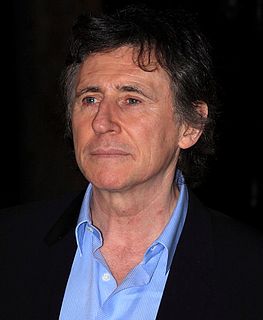Цитата Рэйчел Каск
Существует неряшливое неуважение к истине и реальности, которое заразило и перекрестно заразило искусство; ценности развлечения неумолимо возвышаются до такой степени, что становится практически невозможно написать натуралистическое вымышленное предложение, не чувствуя, что ткань этого предложения уже скомпрометирована.
Связанные цитаты
Первая фраза правды всегда самая трудная. У каждого из нас была первая фраза, и большинство из нас нашло в себе силы произнести ее вслух тому, кто заслуживал ее услышать. На что мы надеялись и что мы обнаружили, так это то, что второе предложение истины всегда легче первого, а третье предложение еще легче первого. Внезапно вы говорите правду абзацами, страницами. Страх, нервозность все еще здесь, но к ним присоединяется новая уверенность. Все это время вы использовали первое предложение как замок. Но теперь вы обнаружите, что это ключ.
Поколение, свободное от СПИДа, означает, что практически ни один ребенок не рождается с ВИЧ; что по мере взросления этих детей риск заражения для них будет намного ниже, чем сегодня; и что инфицированные могут получить доступ к лечению, чтобы предотвратить развитие у них СПИДа и передачу вируса другим людям.
Письмо линейное и последовательное; Предложение B должно следовать за предложением A, а предложение C должно следовать за предложением B, и, в конце концов, вы дойдете до предложения Z. Трудная часть письма — это не написание; это мышление. Вы можете решить большинство своих письменных проблем, если будете останавливаться после каждого предложения и спрашивать: что читатель должен знать дальше?
В конце каждого предложения есть истина, и писатель узнает, как узнать ее, когда он, наконец, доберется до нее. На одном уровне эта истина заключается в плавности предложения, ритме и уравновешенности, но на более глубоком уровне это целостность писателя, поскольку он соответствует языку. Я всегда видел себя в предложениях. Я начинаю узнавать себя слово за словом, пока прорабатываю предложение. Язык моих книг сформировал меня как человека. В предложении есть моральная сила, когда оно звучит правильно. Это говорит о желании писателя жить.
Но иногда, когда я начинал новую историю и не мог ее запустить, я садился перед огнем, выжимал кожуру маленьких апельсинов на краю пламени и смотрел на синее плеск, который они производили. Я стоял, смотрел на крыши Парижа и думал: «Не волнуйся. Вы всегда писали раньше и будете писать сейчас. Все, что вам нужно сделать, это написать одно верное предложение. Напиши самое верное предложение, которое ты знаешь». Итак, в конце концов я напишу одно верное предложение, а затем продолжу оттуда.
Никогда не доверяйте переводу или интерпретации чего-либо, не доверившись сначала его интерпретатору. Одно слово, отсутствующее в предложении, может коренным образом изменить истинное предполагаемое значение всего предложения. Например, если слово «любовь» намеренно или случайно заменить в предложении словом «ненависть», это может спровоцировать войну или ложную догму.





































